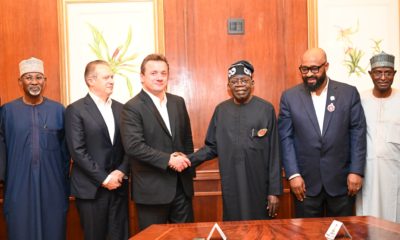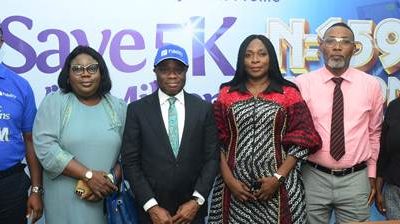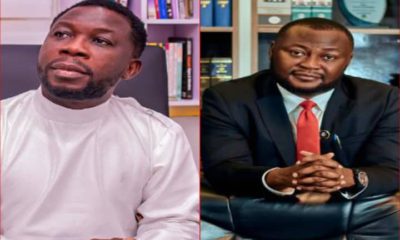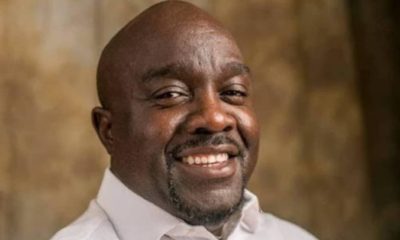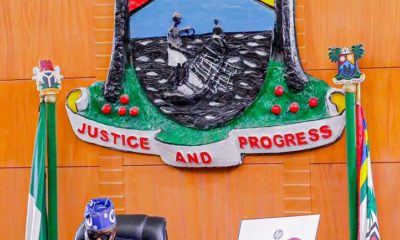News
Nigeria Oral History Documentation Project Intensifies Efforts to Preserve Languages, Dialects in Akwa Ibom State

The Nigeria Oral History Documentation Project, a significant cultural preservation initiative designed by the Wikimedia User Group Nigeria (registered as Wikimedia Nigeria Foundation), is actively engaged in the documentation of languages and dialects in Akwa Ibom State.
This project, organized by the Nigeria Oral History documentation team and supported by the Wikimedia Foundation, a non-profit organization based in the United States, represents a critical effort to safeguard Nigeria’s rich linguistic and cultural heritage.
The project was initiated in response to an observation by the United Nations Educational, Scientific and Cultural Organization (UNESCO) Advisory Committee on Language Pluralism and Multi-language Education.
The Committee had warned that the Igbo language, and by extension its cultural heritage, could face extinction by 2025, potentially being overshadowed by other more dominant Nigerian languages.
Recognizing the urgency of this situation, the Nigeria Oral History Documentation Project was launched to quickly address the risk of this potential loss.
With the support of the Wikimedia Foundation, the project aims to document, preserve, and promote Nigeria’s diverse linguistic and cultural traditions, ensuring that they remain accessible to future generations and contribute to the global repository of human knowledge.
The Nigeria Oral History Documentation Project is led by a team of dedicated professionals with a deep commitment to cultural preservation.
Ambassador Olushola Olaniyan, the Project Lead, provides strategic direction and leadership so as to ensure that the project meets its goals.
Other professionals in the team include: Dr. Isaac Olatunde, the Deputy Project Lead, who brings his academic expertise and experience to guide the project’s research and documentation efforts; and Mr. Babatunde Asaolu, Production Coordinator, who manages the operational aspects of the project, ensuring that all logistics and technical requirements are met.
This team and a skilled production crew are currently on the field in Akwa Ibom State since August 20th, 2024 and will continue their work until September 2nd, 2024.
The team’s efforts are focused on interviewing native speakers, recording their languages and dialects, and capturing the cultural contexts in which these languages are are used.
“The Nigeria Oral History Documentation Project has made substantial progress in its mission. The team has conducted over 150 unique audiovisual interviews, documenting 22 distinct languages and dialects within Akwa Ibom State.
“These interviews capture the linguistic data and preserve the oral traditions, stories, and cultural practices integral to these languages.
“The content produced by this project is of immense value to preserving Nigeria’s cultural heritage. It will be archived in the US Library of Congress and Wikimedia Commons, making it accessible to a global audience. This content is licensed under CCBYSA-4.0, which allows for reuse in research, education, and other academic pursuits, ensuring that the knowledge remains open and freely available. Broader Impact and Future Plans,” Ambassador Olaniyan said.
He noted further that the Nigeria Oral History Documentation Project is part of a broader effort to contribute to the sum of all human knowledge by adding rich and diverse content about Nigeria’s culture, traditions, and ways of life.
According to him, the audiovisual materials collected will be showcased during the International Mother Tongue Day in 2025, highlighting the significance of linguistic diversity and cultural preservation.
Olaniyan also added that after the documentation work in Akwa Ibom State, the project team will extend their efforts to Ogara in Delta State, where they will collaborate with local linguists and traditional leaders to continue their mission of documenting and preserving endangered languages.
He affirmed that the Nigeria Oral History Documentation Project recognizes the importance of collaboration and support in achieving its goals, saying the project team calls on the Nigerian government, cultural professionals, the linguistics community, and all stakeholders within Nigeria’s language and heritage ecosystem to support this critical initiative. With collective effort, the project aims to produce more inclusive and richer content that accurately reflects the diversity and vibrancy of Nigeria’s linguistic and cultural heritage.



